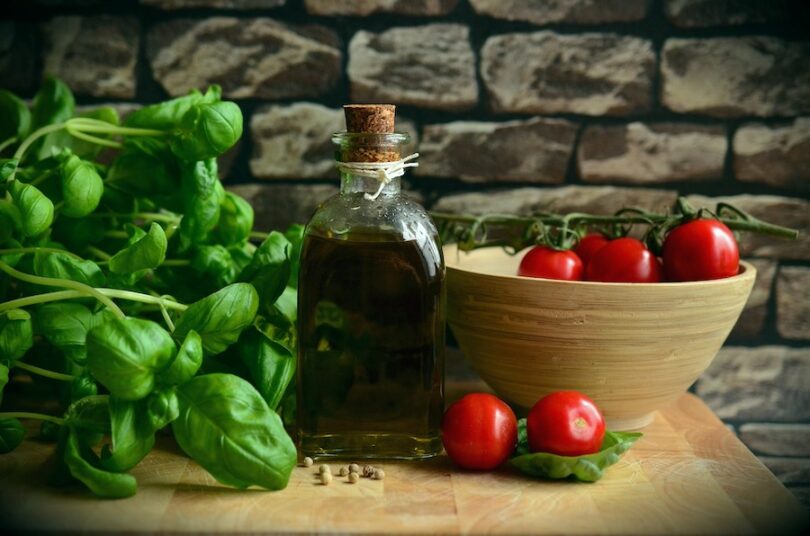Olive oil, a cornerstone of Mediterranean cuisine, has gained popularity around the world for its distinctive flavor and remarkable health benefits. With various types of olive oil on the market, each boasting unique characteristics, it’s essential to understand the differences and what makes this golden liquid so special.
Nutritional Composition: The Goodness Within
The complex nutritional profile of olive oil is at the core of its advantages. Around 75% of the fat in olive oil is made up of monounsaturated fats, the majority of which is oleic acid. Many health advantages of these good fats, such as a lower risk of heart disease, have been linked to them. Moreover, olive oil has vitamins and antioxidants including polyphenols and vitamin E that are essential for sustaining general health. Olive oil is a flexible choice for a variety of cooking methods because to its high smoke point.
Health Benefits: Olive Oil’s Impact on Well-being
The capacity of olive oil to support heart health is one of the health advantages that is most commonly known. Olive oil promotes cardiovascular health by lowering LDL (bad cholesterol) and raising HDL (good cholesterol). Moreover, its anti-inflammatory characteristics can aid in reducing the signs and symptoms of long-term illnesses like arthritis. Moreover, olive oil has been connected to better brain health and a lower incidence of cognitive decline. Olive oil’s reputation as a nutritious component of any diet is further cemented by its role in promoting digestion and nutritional absorption, as well as possible weight-management advantages.
Beauty and Skincare: Olive Oil’s Radiance Revealed
Beyond its health benefits, olive oil has been used for centuries in beauty and skincare routines. Its natural moisturizing properties make it an excellent choice for nourishing skin and hair. Soothing irritated skin and reducing inflammation are other benefits attributed to olive oil’s topical application. Furthermore, its antioxidant content can help combat free radicals, offering anti-aging properties that maintain a youthful, radiant appearance.
Choosing the Right Olive Oil: Quality Matters
To fully reap the benefits of olive oil, it’s essential to select a high-quality product. The differences between extra virgin, virgin, and regular olive oil are primarily based on their extraction process, acidity levels, and flavor profiles. Extra virgin olive oil, considered the highest quality, is cold-pressed and maintains the purest taste and nutritional content. Storing olive oil properly, away from heat and light, ensures its freshness and potency.
Incorporating Olive Oil into Your Daily Diet: A Versatile Elixir
Adding olive oil to your diet regularly is a smart move given its wealth of advantages. Because to its adaptability, it may be used for a variety of culinary processes, including sautéing, baking, and making salad dressings. Outside the kitchen, get inventive with DIY skincare and beauty products, using the benefits of olive oil to bring out your natural shine.
Conclusion: Embracing the Wonders of Olive Oil
Olive oil is an useful addition to any kitchen because of its distinctive taste and health advantages. You’ll surely develop a greater respect for this adaptable elixir as you learn about all of its applications and benefits. Therefore let olive oil improve your culinary creativity as well as your general wellbeing, whether you use it to dress a salad or as a natural moisturizer.



Leave a Reply